Intern Interview: Adali Martinez, MD
A Conversation with Adali Martinez, Intern in the Department of Medicine
What does your beautiful name mean? Is there a special story behind your parents giving you that name?
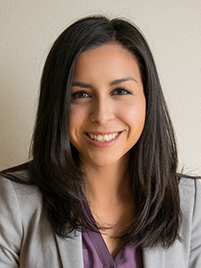
I believe it means “noble” in German, but I’ve been told that a variation of my name comes from the Bible. I am the youngest of three sisters and our names all rhyme “Sarahi, Yarami, Adali”– all with the emphasis on the last syllable. There was no naming tradition other than my mother liking the idea of our names rhyming. The original intent, because they didn’t know if I would be a boy or a girl, was to name me, “Adelid”, but it was tweaked when I was born.
What is a fondly recalled aroma that brings back happy memories? Who or what does it evoke?
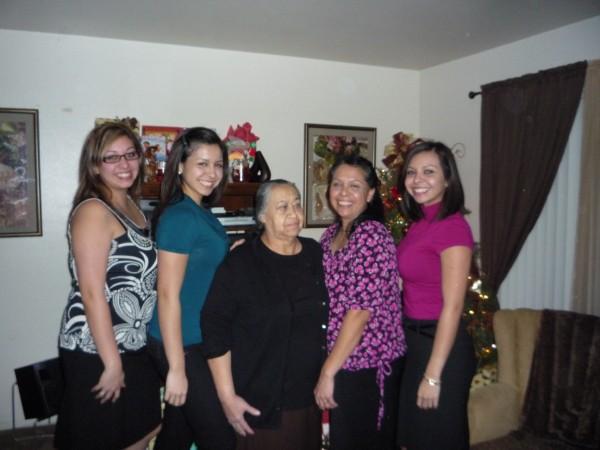
The smell of shredded beef, chicken, or beans, with my abuelita's seasonings, in a pressure cooker. Savory and spicy, it was a mixture of spices that included cumin, bay leaves – and I don’t know what else – but you can get spice and herb packets in Tijuana that have the traditional mixtures for cooking. The rhythmic sound of the cooker reminds me of my grandmother, who tried to teach me her recipes, but it was always, “a pinch of this and a pinch of that.” She never told me exact measurements, so when I try to make her dishes, they never come out the same. My mother cooks the same dishes but then adds ingredients that aren’t in the original recipes! One of my favorite dishes to cook is Sopa de Albondigas although it’s not as good as my grandmother’s. In an effort to make it healthier, I use turkey instead of beef and more vegetables.
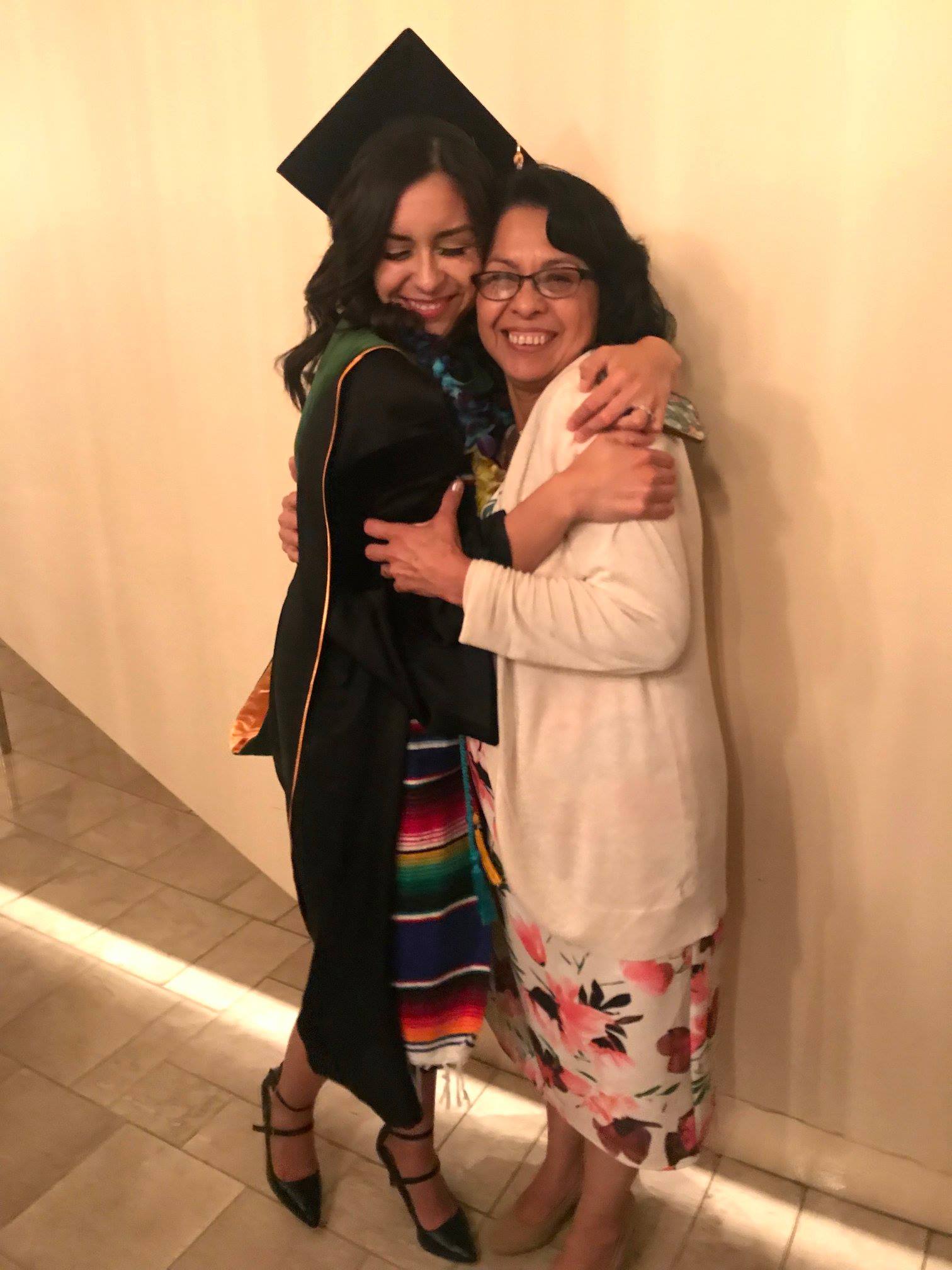
Where were you born and raised? Tell me about your family and how they helped shape you.
I was born in San Diego and my family is originally from Torreon, Coahuila, in the interior of Mexico, south of Texas. I’ve lived mostly with my grandmother, mother and sisters in San Diego – all women in one household – and my aunts all lived nearby so I’ve had a lifetime of positive female models. There was a lot of love and encouragement. My mom was like a single parent, working two jobs (as a housekeeper and IHSS worker), raising three daughters, and she somehow always made it to all of our school events, participated in parent conferences, made our caps and gowns for kindergarten (she is now a seamstress with her own company) – she did everything as a parent and as a provider. She is the best example of how I want to live my life: giving to others, to be selfless, driven by love and a desire to make the world a better place for the people around you. My dad lives in Mexico, close to the San Diego border, and we, as a family are still close. He was deported when I was 6 years old. My mom sees him regularly and I see him as often as I can. We even lived in Mexico for 3 years to be with my dad and would cross the border every day so my sisters and I could go to school in the U.S. Still, after 20+ years, you would think that I would be okay with our family being apart, but I am not; it’s not right. He couldn’t walk me down the aisle when I got married or across the stage when I was hooded on graduation day. Having the liberty to see our parents or their children should not be a political issue.
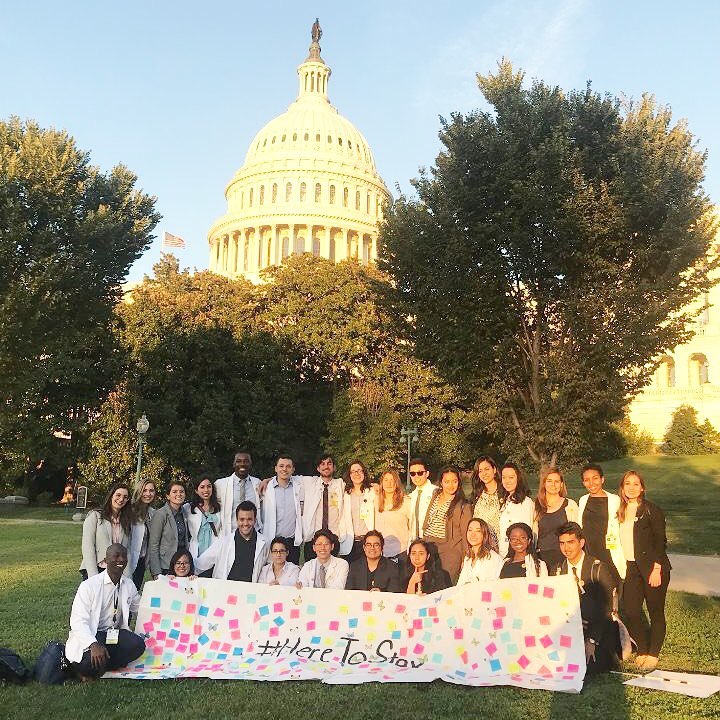
Can you recall a particular time that initiated your path to becoming a doctor?
I loved biology and the basic sciences and studied at Johns Hopkins because I thought I wanted to be a neuroscientist. When my grandmother got sick, I returned to San Diego to be involved in her care in the ICU and in hospice care, and that experience changed my perspective about what I wanted to do with my life. I realized that I had unique opportunities that others in my family and neighborhood did not have. At the time, as an undergrad in Baltimore, I was also involved in public health initiatives and advocacy within that community, so I think I was already headed in the direction of Medicine.
As a medical student, I went to Washington D.C. to advocate for the Dream Act and Medicaid, and other health related topics, and visited legislators and the offices of House Representatives. UCSF School of Medicine was very generous in allowing us to bring 30 medical students to Washington D.C. to advocate for the Dream Act and that experience was amazing.
Are there more Hispanic/Latino physicians than in years past? Is culture change happening within the Latino community towards more visibility in the healthcare profession?
I think so and I believe that UCSF is making a lot of strides in increasing diversity, although there is still a lot of work to do. I see it more when we attend conferences with the Latino Medical Student Association and the National Hispanic Medical Association – concentrated groups of people doing great work all over the country – but I do not feel that we’re very representative of the patient population that we are serving. The Latino community is so tight-knit and the family unit is so important that historically it has been hard for parents to encourage children to forgo finding a paid job and instead get a degree and continue onto higher education. But yes, there has been a culture change. I think that there is a lot more emphasis on going to college, having a career, and independence than maybe there was in earlier generations. There are many more pipeline programs for Medicine and other careers to help change that narrative. The more examples that we have, the easier it will be for the next generation so, when my family asks me to, I am always happy to speak to students about careers, to show young people that it is possible and worth the sacrifice and hard work. My mom paraphrases something she was told when my older sisters were in high school and shares it with other mothers: “A Latino family is like being on a ship, but we always want to put anchors down and not let that ship sail. There is a vast ocean of opportunity, but if we don’t lift the anchor, our children will never reach their potential.”
How would you describe how your original plan may have evolved or changed in the years? What is the most driving need you respond to at this point in your career?
When I went to medical school, I knew that I wanted to work with underserved communities in public health. However, in learning more about “the system” at large, it made me more driven to work in health policy. I love personal interactions like those I have with patients in clinics and building relationships, but so much suffering stems from a systemic level and if we don’t address those larger problems, then our efforts can go only so far. Seeing inequities makes me more driven, and I’ve moved more towards health policy work. I want to be a good doctor and I want to help influence the system that we work within.
How do you focus your energies?
Some people leave work at work, but I do often take it home. What keeps me going is trying to remember that I am impacting someone’s life and I try to connect with that on a very personal, human level. My husband is an administrator at an elementary school in the Bayview and witnesses lots of trauma in the lives of very young children. We spend time to listen to each other, support one another, and acknowledge that we each encounter trauma in different ways.
Outside of Medicine, what do you do that you love?
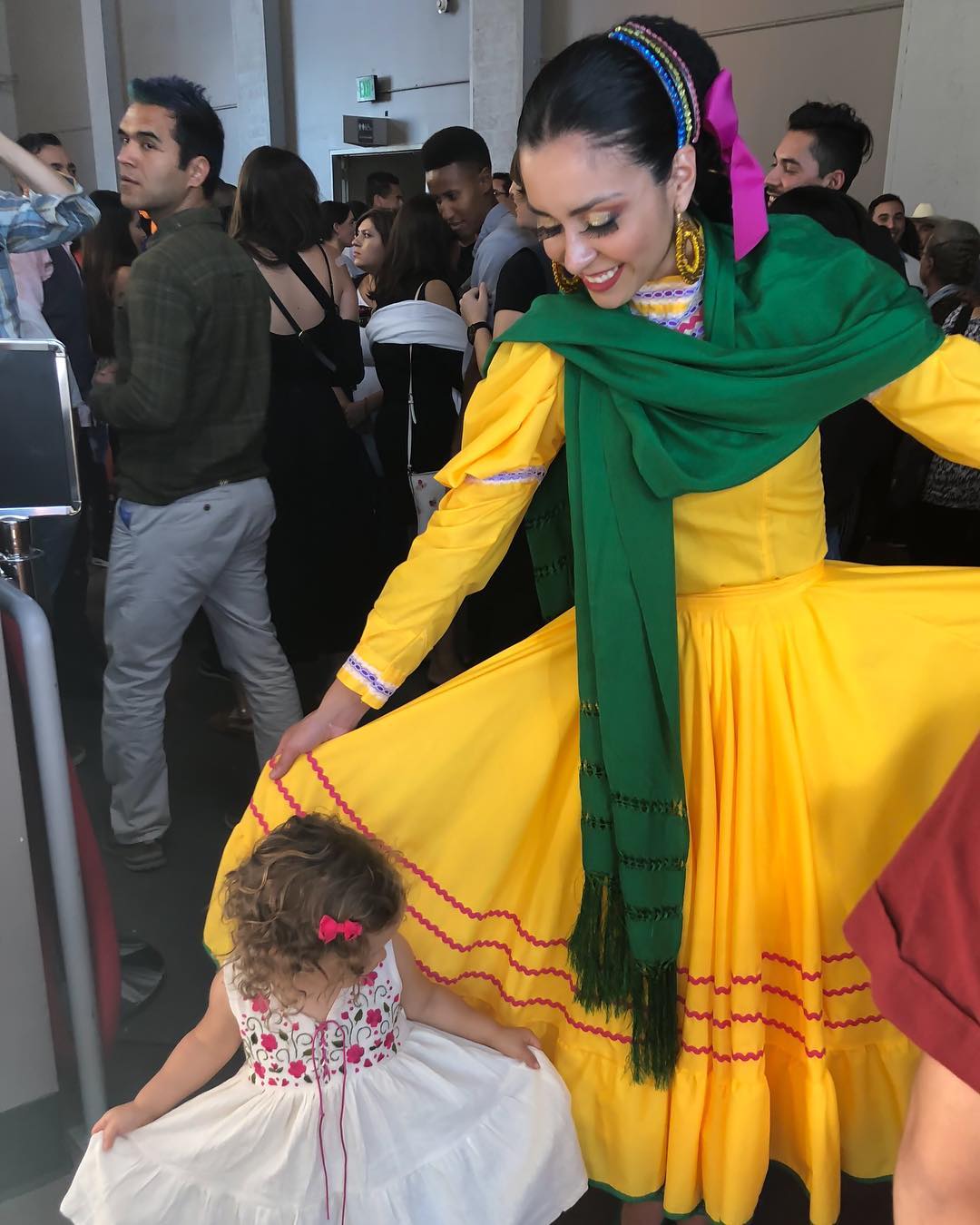
I dance with Los Ensambles Ballet Folklorico de San Francisco. Of all the regions, I love Veracruz; it’s very feminine and I get to bring the sass!
Are you a reader? What do you enjoy and would you ever consider writing about your family story?
I read mostly non-fiction and I like to learn about the places that I’ve lived, so when I moved to San Francisco, I read the Tales of the City series and Season of the Witch. I like to read about advocacy, social justice and history, like The New Jim Crow: Mass Incarceration in the Age of Colorblindness, and Open Veins of Latin America.
I used to write a lot more – journaling, poetry and essays – but if I did ever write about my family story, I would talk about what it was like to grow up as a family separated by a border. My story isn’t unique; many of my classmates growing up were in a similar position, but our story is rarely told.
Muchas gracias, Adali.